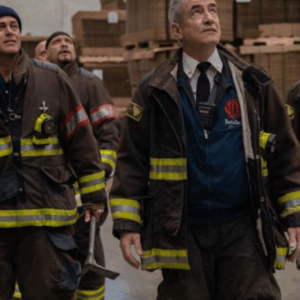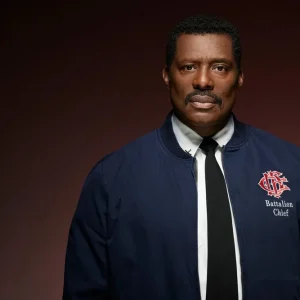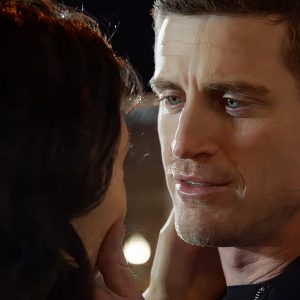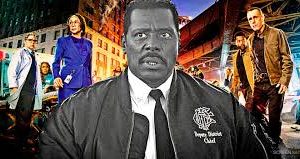The roar of the sirens, the crackle of a two-way radio, the urgent shouts of “Truck 81, Squad 3, Ambo 61!” – these are the familiar sounds that define the world of Chicago Fire. For over a decade, audiences have been captivated by the courage, camaraderie, and complex personal lives of the firefighters and paramedics of Firehouse 51. But as the cameras stop rolling and the heavy turnout gear is shed, the actors who bring these beloved characters to life step out of the blaze and back into a different kind of intensity: the enduring glow of fame and the quiet, often demanding, rhythm of real life. The true inferno, perhaps, is not the one they extinguish on screen, but the delicate, often precarious, balancing act required to live authentically under the public eye.

On screen, they embody heroes. Taylor Kinney’s stoic Kelly Severide, Miranda Rae Mayo’s fiery Stella Kidd, David Eigenberg’s paternal Christopher Herrmann – their faces are instantly recognizable, their names synonymous with prime-time heroism. When they walk the red carpet, under the blinding flash of paparazzi bulbs, they are the epitome of Hollywood glamour, embodying the aspirational image of success. Fans clamor for autographs, social media overflows with adulation, and their every public move is scrutinized. This is the intoxicating, yet often overwhelming, orbit of fame: a world of private jets, exclusive events, and the constant hum of public expectation. It’s a career that demands an almost superhuman level of availability, not just on set for grueling 14-hour days, but also in the public sphere, where a simple grocery run can turn into an impromptu fan meet-and-greet.

Yet, beyond the glitz and the glamour, these actors are just people. They have families, friends, bills to pay, and the mundane necessities of everyday existence. The challenge, then, lies in tethering oneself to the familiar while being constantly pulled by the magnetic force of celebrity. For many, family becomes the sacred fortress, the ultimate anchor in a swirling sea of public attention. Imagine, for instance, a hypothetical evening for one of the cast members, perhaps someone known for their quiet demeanor off-screen. After a day battling simulated blazes and emotional crises, the actor sheds the heavy uniform, drives home, and the first thing they do is kick off their shoes, not onto a plush movie set carpet, but onto the worn leather of a favorite armchair. The script pages are replaced by a child’s crayon drawing, the adrenaline of a rescue scene by the quiet, aromatic comfort of a home-cooked meal. These small, deliberate acts of domesticity are not just routines; they are rituals of reclamation, moments where identity is reaffirmed not as a famous actor, but as a parent, a spouse, a friend.
Hobbies and passions outside the acting world also serve as crucial counterweights. Some might retreat to the solitude of nature, hiking remote trails, finding peace in the rustle of leaves rather than the clamor of a film set. Others might immerse themselves in creative pursuits unrelated to their career—painting, playing an instrument, or woodworking—activities that demand focus and skill, but offer no applause, only the quiet satisfaction of creation. These are not just pastimes; they are essential acts of self-preservation, providing a mental and emotional escape from the relentless demands of a public persona. They remind the individual that their worth extends far beyond their latest IMDb credit or their social media follower count.
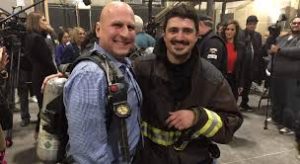
Crucially, the tight-knit cast of Chicago Fire itself often provides an invaluable support system. Unlike a typical workplace, the bonds forged on set, through shared long hours and emotionally demanding scenes, can transcend professional courtesy. They are a surrogate family, understanding the unique pressures of their shared reality. There’s a certain solace in knowing that the person across the table at lunch understands the specific fatigue of an overnight shoot, the bizarre experience of being recognized in a foreign country, or the delicate balance of responding to fan mail while also trying to live a normal life. This shared understanding can be a powerful antidote to the isolation that fame can sometimes bring.
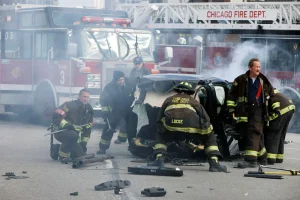
Ultimately, the balance between fame and real life for the cast of Chicago Fire is not a destination achieved but a constant, ongoing negotiation. It’s a tightrope walk where one misstep can send ripples through both worlds. It requires immense discipline, a strong sense of self, and often, a deliberate choice to prioritize the quiet hum of domesticity over the roaring applause of the crowd. Their ability to do so, to remain grounded and authentic despite the bright lights, is perhaps the most impressive performance of all. It’s what allows them to return to the screen, season after season, imbuing their characters with a depth and relatability that truly resonates, because behind the uniform, behind the fame, they remain, simply, real people.
